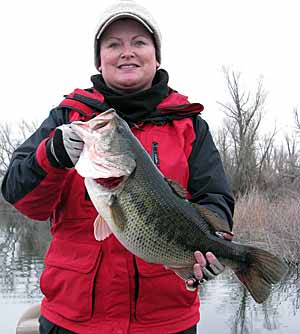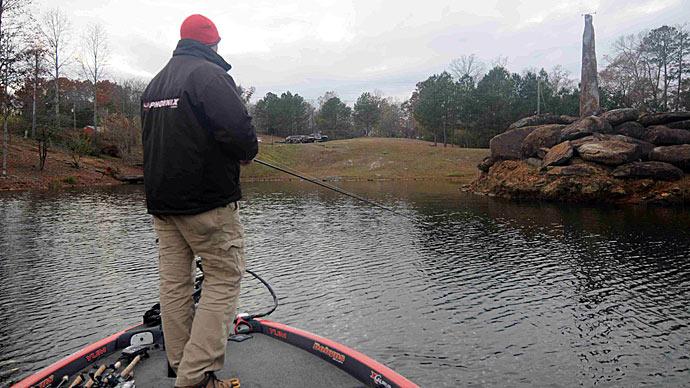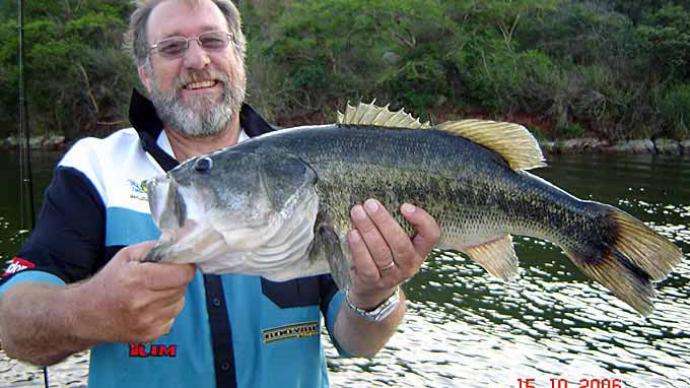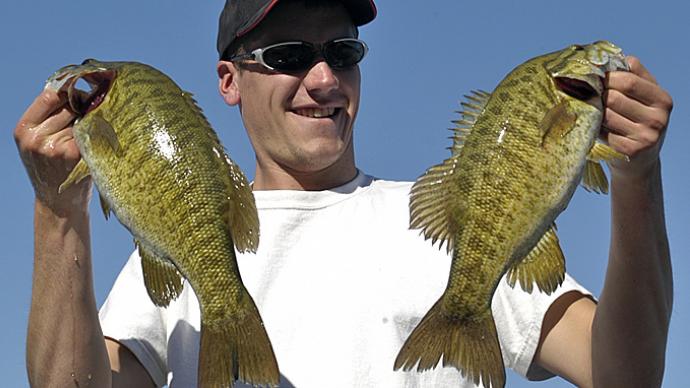
When we attended school, we all wished we could learn at an accelerated pace. Taking all those years to learn English and history took away from our time fishing, hunting and hanging out with our friends.
I wondered why I was taking classes on subjects I would never need in my adult life. But then, in college, it hit me. I was learning how to learn. I would have been much happier if I could have figured out how to get my brain to absorb information more rapidly.
Accelerating the learning curve is more than welcome once the bass fishing bug bites an angler. You can take two or three years attempting to understand the physics involved in keeping a baitcast reel from turning into a snarl of tangles, but it's easier when someone says, "Here, do this with your thumb," and soon you find yourself casting like Kevin Van Dam.
In today's information age, we have numerous data acquisition methods. We can read all of the Pro Columns found in magazines. The articles provide us with a plethora of information vital to successful angling.
We also have the Internet. You can go to BassResource.com and ferret out boatloads of information on virtually any fishing subject with a bit of browsing. You can go to the forums and ask about the fishing on Roosevelt Lake in Arizona, and before you know it, your email box is stuffed with enough letters to wear out the legs of your e-mailman.
Videos are another source of information. You can find videos on every fishing subject, from flippin' to floppin' and jiggin' to riggin'. You name it; there's a video for it. All of them are good and should be a part of any serious angler's library.
Naturally, there is also the old-fashioned method of "shootin' the bull" with your fishing friends. This method is not guaranteed to be accurate, but it is one of the more enjoyable ways of sharing information.
While technology is great, there is still one method of accelerating the learning curve that still beats them all. Hands-on learning! Get out on the water, stand in a boat, put a rod in your hand, and make a cast. It's incredible how quickly the fish will teach you. Combine the hands-on technique with a guide who knows what he is doing and will share information with you, and your brain will absorb the information so fast that much of it will become instinct.
Even the nation's top professionals use guides to accelerate their learning curves. They hire guides before a tournament to help them locate structure, channels, and the various little quirks of the local fish.
A good guide is worth his weight in Senkos. For the weekend angler, a guide can make your trip more enjoyable and successful. Naturally, this comes with a price. But the difference is insignificant when you weigh what you would spend to take your boat, fuel, and tackle to catch a few small fish or pay $300, have most things supplied, and catch quality fish. Plus, you'll be in the boat with someone who knows the water and can teach you more in one day about a lake than you could learn in months.
There are things you should keep in mind before hiring a guide. The first thing you need to do is research. Call the local tackle shops and boat dealers to get a list of guides they would recommend.
Keep in mind that different people have different needs. Be realistic about what you expect from your guide. If you are new to the sport and want to learn more about techniques, presentations, and tackle, ensure your guide knows this up front. Locate a guide known to be more than a guide, one who is also a teacher. For instance, on the Sacramento/San Joaquin Delta, Pro angler Don Payne is known for his superb teaching abilities.
When you feel you've located a guide, ask for references. Any GOOD guide will be fine sharing references with you, and would be okay if you check them out. For those who aren't tournament anglers, hiring a guide makes sense. I have several clients who are businessmen, and their schedules are not conducive to spending 30 days a year on the water. They are lucky if they can get on the water two or three times a year. For these "captains of industry," it doesn't make sound financial sense even to own a boat. When they find time to shuck the suit and wear shorts and a T-shirt, they want to have the best time possible. A good guide is the answer.
If you want to learn about a particular body of water, you fish all year. It makes sense to hire a guide during each of the seasons. This will enhance your fishing for that particular year and for years to come. You can more readily learn the movements of the fish, tactics to apply, and how the fish adapt to various temperatures.
A good guide will be completely honest with you. For instance, you may want a trip where you can perfect your topwater skills and relate this desire to your guide. A good guide will inform you of the best times to be on the water to enhance your topwater-fishing trip. A guide may even have you leave your phone number with them, and they will call you back when the time is right. This can save you a lot of time and money.
Hiring a guide is very beneficial to anyone who fishes for bass. It doesn't matter if you are a beginner, advanced, or one of the best professional anglers in the nation. A good guide will add quality to your fishing time.
Until next time, good fishing!
Reprinted with permission from Bass West Magazine




